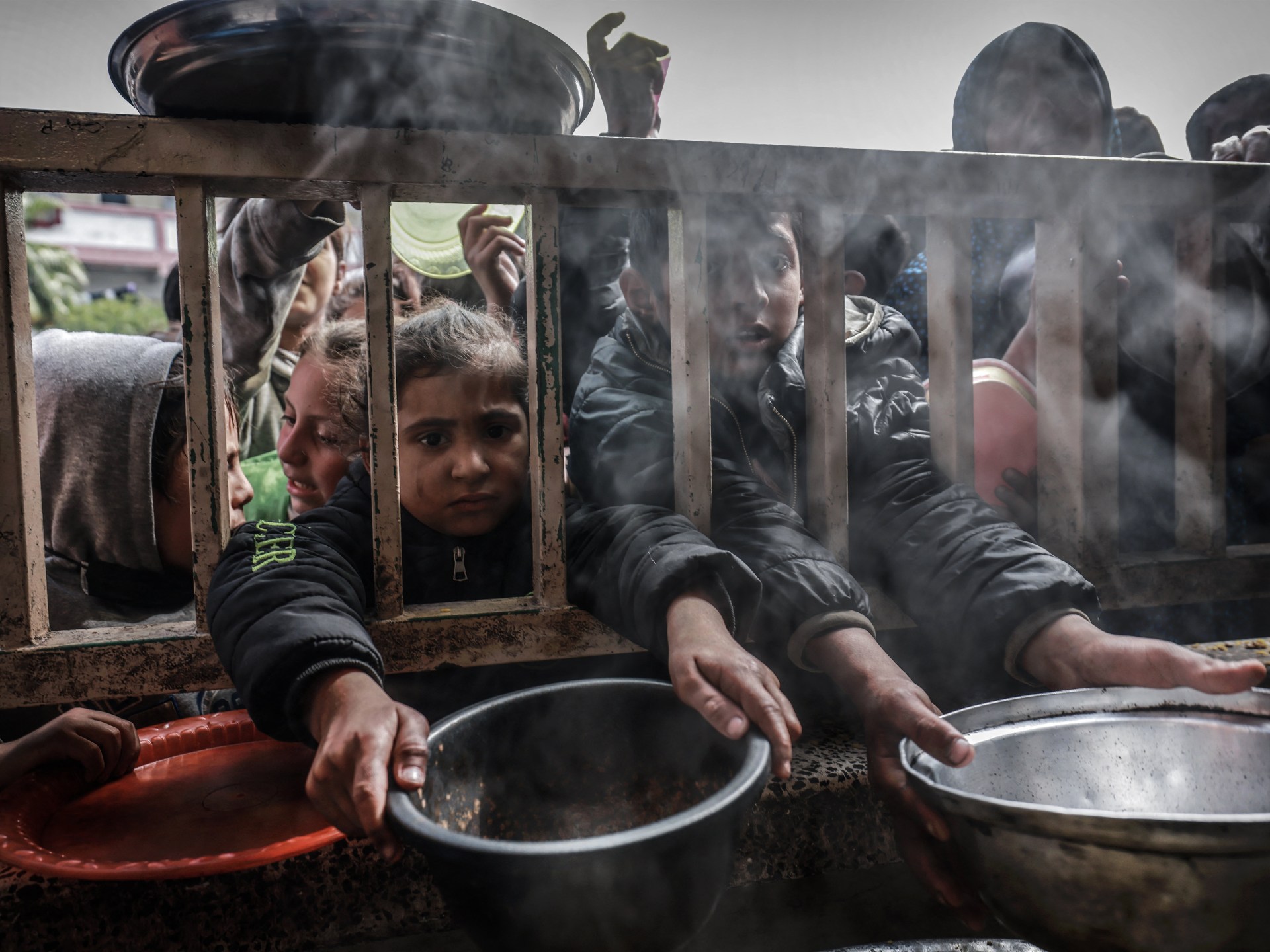Displaced children in Gaza wait their turn to get some food (French)
United Nations Children's Fund (UNICEF) spokesman James Elder said that children are the groups most affected by the Israeli war on the Gaza Strip, and that his organization describes what is happening in the Strip as a "war on children."
Elder confirmed - in an interview with Anadolu Agency - that Gaza is no longer a suitable place to live for children due to the war, as they are exposed to targeting and great psychological pressure, and he called for stopping the war to spare them from further woes.
The UN official - who visited Gaza twice since the outbreak of war on October 7 - said that children are usually harmed by wars, as they are the most vulnerable group in society, and they often constitute about 20% of those killed in wars, but this number is approaching Gaza by 40%, as Israel has killed more than 10,000 children since the beginning of the war, and the number is on the rise.
He pointed out that about a million children live in the Gaza Strip in conditions of despair and hunger, and said that the Palestinians in Gaza in general live under the weight of war and despair, and that “people are very tired, there are many hungry people, and there is still great fear that the crazy idea of launching an attack will come true.” Military (ground attack) on the city of Rafah, south of the Gaza Strip.
During the interview conducted with him, the UN official touched on the situation of the health sector in Gaza after the continuous targeting of the health infrastructure in the Strip, and said that Nasser Hospital in the city of Khan Yunis (southern Gaza) has become in a miserable condition due to the Israeli targeting.
He continued, "This hospital is extremely important; it provides services to injured children in particular, but it is no longer able to provide its services."
In his speech, he stated that he visited two other hospitals that were also crowded with patients, indicating that hospital staff constantly indicated a lack of medical supplies.
The spokesman stressed that UNICEF was able to deliver large quantities of medical supplies to hospitals, but there is still an urgent need to deliver more aid to the northern Gaza Strip in particular.
He explained that "more than 20 hospitals out of 36 in Gaza are out of service."
Elder stressed the urgent need to bring more aid into Gaza, and the need to ease restrictions on the entry of aid by land. He also stressed the need to allow relief teams to carry out their work.
Source: Al Jazeera + Anatolia

